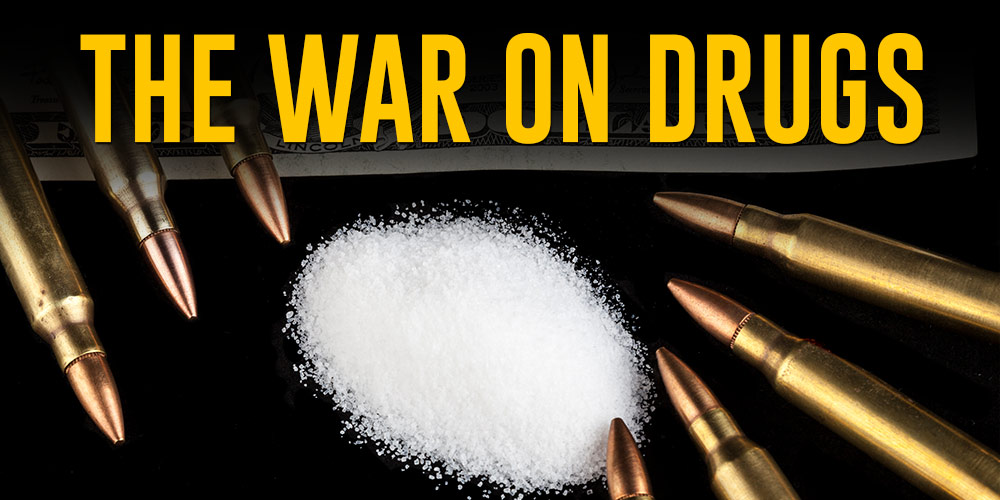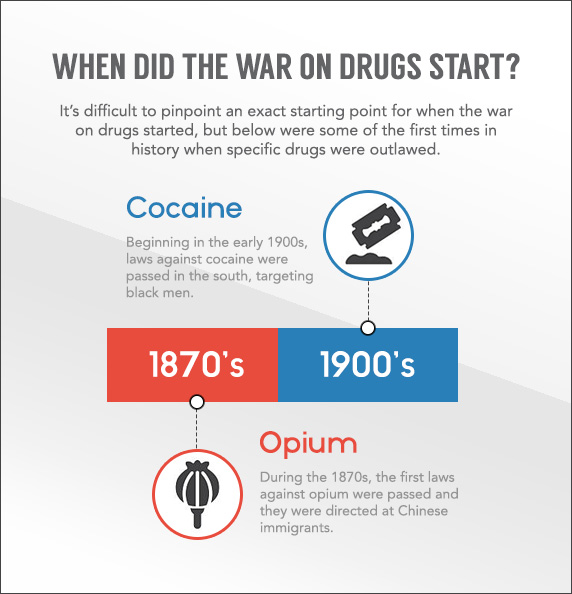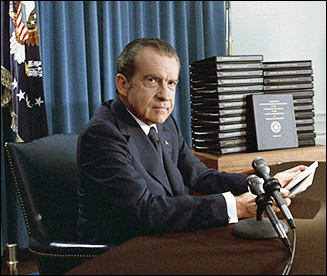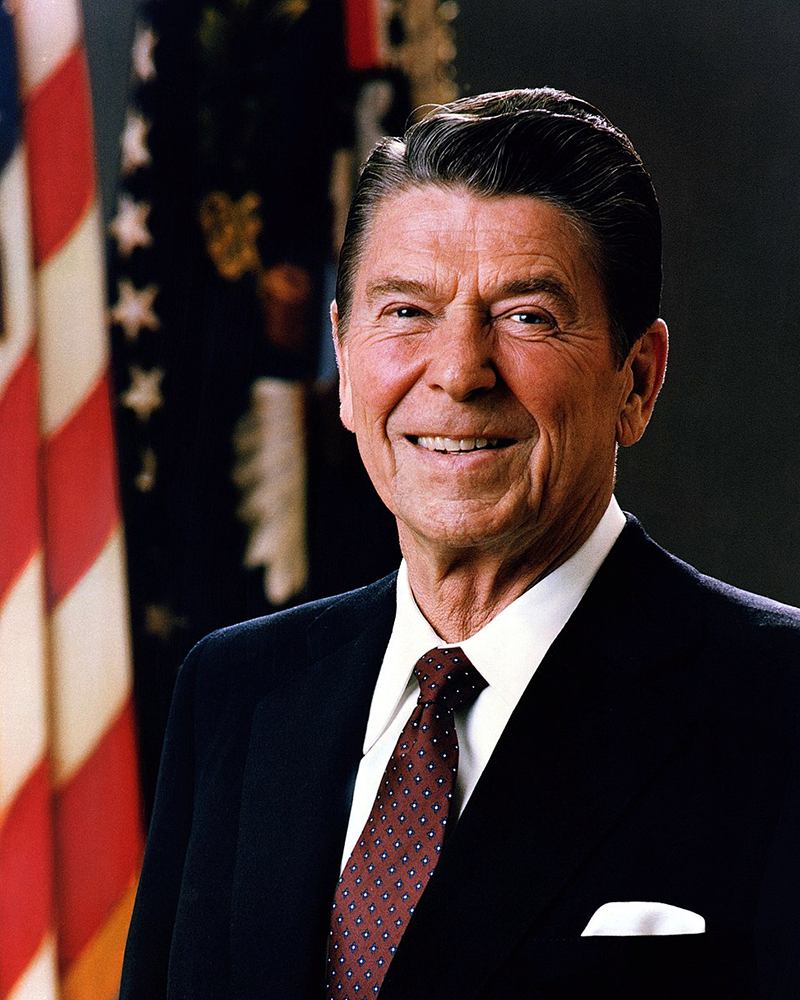
Many drugs that are currently illegal, such as opium, cocaine, and psychedelic drugs, have been around for thousands of years, and used for both spiritual and medical purposes.
Certain drugs throughout the years, however, have become illegal.
This motion, put forth by the government, is not due to a scientific assessment of the risks that come along with the drugs, so much as who is associated with each specific drug.
A Brief History Of The United States War On Drugs
It’s difficult to pinpoint an exact starting point for when did the war on drugs start, but it’s known that during the 1870s, the first laws against opium were passed and they were directed at Chinese immigrants.
Beginning in the early 1900s, laws against cocaine were passed in the south, targeting black men.
These were some of the first times in history when specific drugs were outlawed.
While marijuana is legal in some states today, the first laws against marijuana took place in the Mid and Southwest, directed towards Mexican immigrants. These early practices have led to issues today where Latino and black communities are still targeted much heavier than other races and ethnicities when it comes to drug enforcement and sentencing of drug crimes.

President Nixon and The War on Drugs
In the 1960s drugs became a symbol of rebellion for young people. This led the government to stop doing scientific research that was evaluating the efficacy and medical safety of certain substances.
During his presidency, Nixon declared a “war on drugs” in which he increased the presence of federal agencies that focused on drug control, and created mandatory sentencing and harsher warrants for drug related suspects.
Nixon even opposed an idea to let marijuana be a legal substance countrywide. Marijuana has become legal and then illegal again in several states throughout history, but it is mostly illegal presently.

Regan War on Drugs
Ronald Reagan’s presidency marked the beginning of a long period of growing rates of incarceration, due to his new expansion of the war on drugs. The number of people incarcerated for non-violent drug offenses began to skyrocket during this time.
During the 1980s, public concern about hard drugs was heightened because of media portrayals of people who were becoming addicted to crack, which is the smokeable form of cocaine.
Nancy Reagan, the First Lady during the presidency of Ronald Reagan, began a widespread and popular anti-drug campaign for the country, telling people to “Just Say No.”
In the late 1980s, zero tolerance policies were implemented, along with the DARE drug education program. This program was adopted nationwide, even though there was not scientific evidence that it was effective.
These increasingly stern drug policies resulted in roadblocks for people to use illicit drugs, such as blocking the expansion of access to syringes and other policies to reduce harm and the rapid spread of HIV and AIDS.
During the late 1980s, political hysteria began regarding illegal drugs, which led to Congress passing severe penalties and state legislatures rapidly increasing the prison population.
From 1985 to 1989, polled Americans who believed drug abuse was the nation’s largest problem grew from 6% to 64%. This remains one of the most severe fixations by the American people on any political issue in polling history.
President Bill Clinton urged for treatment rather than incarceration during his presidential campaign in 1992, and after being elected president, he returned to the drug war strategies of his presidential predecessors.
One of the most notable things that Clinton did to further the war on drugs was to reject a U.S. Sentencing Commission recommendation that asked to remove the disparity between the prison sentences of crack and powder cocaine.
Moving into the 1990s, at the height of the hysteria over the drug war, a movement surfaced that would take a novel approach to drug policies.
In 1987, the Drug Policy Foundation came about, and in 2000 became The Drug Policy Alliance. This was envisioned to be a loyal opposition to the drug war, and several initiatives were introduced that have since defined drug policy reform in the United States.
Some of these included:
- Regularly scheduled conference on drug policy reform
- Awards program that would recognize the achievement of people in various fields who were working in drug policy reform
- Updated publication that was sent out to readers
- Effort to strongly build up an organization of members to work with drug policy reform

The New Millennium
George W. Bush became president as the drug war was beginning to wind down, but he still allocated the most money ever in history to the reform. He mainly focused on marijuana, and launched a campaign that would promote drug testing in students.
The rates of illegal drug use remained the same, however, an increasing number of fatalities due to overdoses were reported.
During Bush’s presidency, the country witnessed a fast escalation of law enforcement in the militarization of domestic drugs.
Following Bush’s term, drug-related SWAT raids had targeted about 40,000 American citzens every year. These were typically for nonviolent drug offenses, and often for only misdemeanors.
Currently, many politicians admit to having used illegal drugs such as marijuana and cocaine during their younger years. Many presidents have even admitted their past drug use with almost a sense of pride, as it was a rite of passage for those decades.
While president Obama advocated for reforms, such as reducing prison sentences and supporting state medical marijuana laws, the country has yet to move the majority of the funding from drug control to a “treatment first” based approach.
Currently, Alaska, California, Colorado, Maine, Massachusetts, Nevada, Oregon, Washington, and Washington DC have legalized recreational marijuana and many others have legalized medicinal marijuana use. This means that marijuana law reform has gained momentum through the past years.
In 2013, Uruguay became the world’s first country to regulate marijuana legally. Marijuana has also been promised to be legalized in Canada.
Many people no longer see drug related offenses as being criminal, but want reforms in order to create treatment based approaches. However, the assaults on Americans due to drug use and possession continues, with half a million people still in prison for a nonviolent drug law violation.
While progress is slow, there is currently momentum behind reform on drug policies. Many hope for a future where drug policies are determined by science, rather than hysteria in politics.
Related Posts
- Long Term Side Effects of Drugs and Addiction
There's a lengthy list of long-term side effects of drugs and addiction that affect both…
- Top 10 Worst Drugs and Most Dangerous Drugs
Americans are more likely to die from drug abuse and misuse than any other preventable…
- Whippets Drug Side Effects, Dangers and Addiction
The Whippets Drug is one of the most common inhalants used recreationally by teens and…
